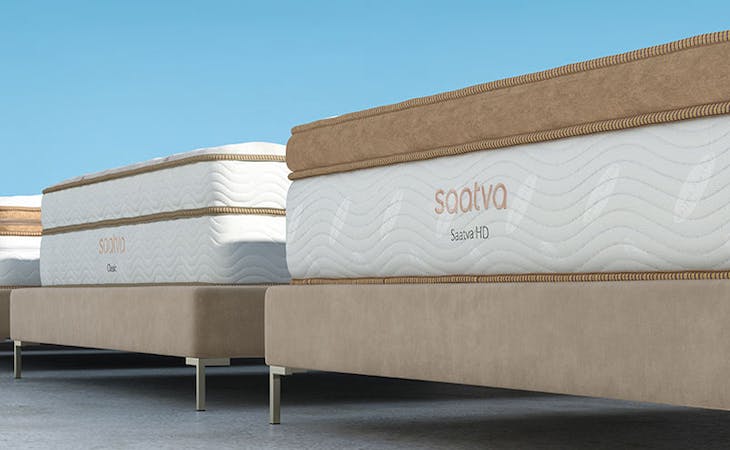When you shop for a mattress, it’s always a good idea to read the fine print before making a decision. That’s because certain things can void your warranty-such as exceeding the mattress’s weight limit. A mattress not designed to support your weight also won’t deliver the comfort and longevity you want. (And here are some more tips for buying a mattress if you’re a bigger-bodied person.)
Here’s what you need to know about mattress weight limits before buying a new bed.
What are typical mattress weight limits?
In general, conventional mattresses are designed to support people weighing up to 250 pounds. For mattress sizes that can accommodate two sleepers, like queens and kings, that’s up to 250 pounds per side of the bed, or a 500-pound total weight limit.
“Most mattress brands list the weight limits for their particular model on their website,” says Bill Fish, co-founder of Tuck.com. If the info isn’t on the website, Fish recommends reaching out to the brand directly.
Related: How much does every type of mattress weigh?
Do different mattress types have different weight limits?
While most conventional queen- and king-size mattresses can hold up to 500 pounds, that doesn’t mean that every type of mattress is right for every type of body. “After testing hundreds of mattresses, we don’t believe that a memory foam or poly foam mattress can adequately support a sleeper over 200 pounds for an extended period of time,” notes Fish. “The core of a great night of sleep is spinal alignment, and it will be difficult for a person over 200 pounds to achieve proper spinal alignment with the support layers typically found in a memory foam mattress.”
That said, there is a growing selection of mattresses for people weighing between 300 and 500 pounds. Mattresses designed for heavier people are often in the hybrid category. They feature an innerspring base for support and are topped with comfort layers of foam and/or latex to provide pressure relief and motion isolation so sleeping partners don’t wake each other by moving around during the night. Queen- and king-size mattresses in this category usually have a 1,000-pound total weight limit.
Related: What’s the best mattress for your body type?
Does a mattress’s thickness affect its weight limit?
“A taller mattress does not mean that it will have a higher weight limit,” says Fish. Rather, it’s the components inside a mattress that affect its weight limit. “Without question, the use of coils elevates the weight limit for a mattress,” says Fish. “Whether it is a traditional innerspring mattress or a hybrid mattress with a pocketed coil support core, those mattresses using steel in the support layer will be able to handle more weight than a mattress using poly foams, memory foam, or latex.”
Do mattress foundations have weight limits?
Mattress foundations have weight limits as well, says Fish. They’re similar to mattresses—most queen- and king-size foundations can hold up to 500 pounds, excluding the weight of the mattress. Keep in mind that adhering to the foundation’s weight limit will also likely be part of the warranty. As with mattresses, you should be able to find this information on the company’s website—and if you can’t, a customer service rep should be able to guide you to it.
Many of the mattresses designed for people weighing over 300 pounds are meant to be paired with matching foundations. These foundations are stronger than typical foundations and box springs and thus have a higher weight limit that can accommodate heavier sleepers.
FAQs
Do mattresses have a weight limit?
Most conventional queen- and king-size mattresses have a weight limit of up to 500 pounds. It’s important you choose a mattress that’s designed to support your weight and body type. If you sleep with a partner, make ensure the mattress can support both of you.
What is the best mattress for a 300-pound person?
The best mattress for a 300-pound person would be a hybrid mattress, especially a king- or queen-size mattress as it can hold more weight and provide additional support.







